The article discusses the state of China's economy and argues against government intervention, highlighting the growth of U.S. companies in China as evidence of a positive future, despite economic challenges.

Despite Americans' concerns about their jobs and financial conditions, the U.S. economy is still growing, with companies hiring and job openings on the rise, indicating overall strength in the labor market.

Consider opening a CD or high-yield savings account, locking in a mortgage rate, and paying down debt to improve your financial situation in March and position yourself for future success.
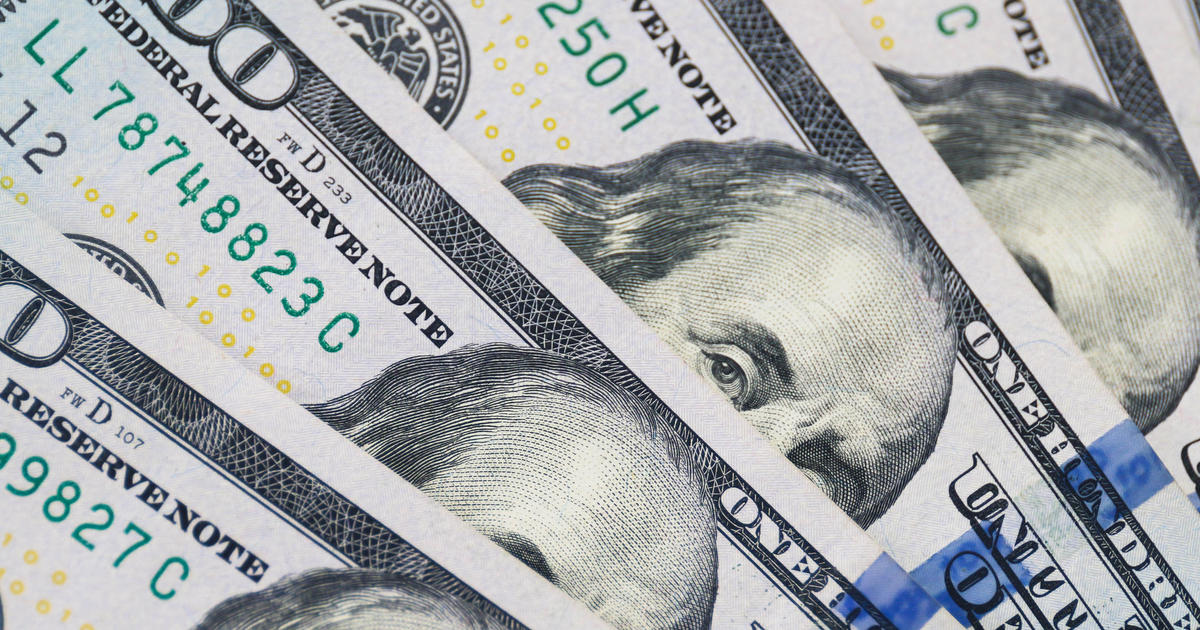
Treasury yields decrease ahead of U.S. PCE inflation, supported by higher-than-expected GDP growth and expectations of a first Fed cut in June.

U.S. stocks closed slightly lower ahead of the release of key inflation data that could impact the timing of a Federal Reserve interest rate cut, with market expectations for the cut being pushed back from March to June due to signs of persistent inflation and a strong U.S. economy.

To avoid a recession, the U.S. economy needs to pass two bills currently being debated in Congress—a proposed tax cut and military aid for Ukraine and Israel—according to Piper Sandler chief global economist Nancy Lazar.

Becoming part of the 1 percent is increasingly difficult, with a net worth of at least $5.8 million required in the United States, according to Knight Frank's 2024 Wealth Report, which highlights the wealth needed to join the 1 percent in different countries around the world. Monaco remains at the top of the list, with individuals needing at least $12.8 million, while poorer countries continue to struggle economically, further widening the gap between the rich and the poor.

Stocks decline ahead of key inflation report, RBC beats profit estimates boosted by fee income, Amazon aggregator Thrasio files for bankruptcy, crypto leverage fuels Bitcoin surge, CIBC provides growth capital to Drips Holdings, Canada's housing market speculates on lower interest rates, Trump's lawyers seek to halt collection of civil fraud judgment, Tricon reports strong Q4 results, Stripe valued at $65 billion after employee share deal.

The majority of small business owners in the US are optimistic about the nation's economy and their own financial prospects, with economic optimism reaching a 22-year high, according to a survey by PNC Financial Services Group. The survey found that 55% of small and midsize business owners are "highly optimistic" about the national economy this year, up from 34% last fall and 26% a year ago. Additionally, the survey revealed that over half of the business owners anticipate their profits to rise over the next six months, while inflation slows down.

The US Federal Reserve predicts that inflation will face challenges in returning to pre-pandemic levels, with an expected increase in the PCE index in January that may exceed the central bank's comfort level and raise concerns about the path of inflation.

Cuba's government has announced a 500 percent increase in fuel prices, to take effect this week, as the cash-strapped island nation seeks to cut its budget deficit.

Labour's shadow chancellor, Rachel Reeves, acknowledges that it will take time for a Labour government to turn around the economy due to the damage done by the Conservatives over the past 14 years, and emphasizes the need for a national mission to kickstart economic growth.

Nearly 25% of job gains in the U.S. in 2023 were in government positions, highlighting a heavy reliance on public sector employment for economic growth, despite a thriving economy and tech sector performance.

Despite a tech boom slowdown and layoffs, Silicon Valley has experienced a net gain in jobs and a reversal in population decline, with the region adding 2,700 jobs and seeing a positive migration for the first time in eight years.

Canada has the highest level of household debt to disposable income among G7 countries, with a debt-to-income ratio of over 180%, attributed to homeownership and imbalances between assets and debt.

The U.S. economy grew at a solid pace in the fourth quarter of 2022, boosted by strong consumer spending, and despite a weak start due to bad weather, the outlook for this year remains positive.

The inverted yield curve, a classic recession indicator, has been present for 16 months, but a shock to the system, which is another component of a recession, has yet to appear.
The net worth required to be in the top 1% of America's wealthiest has increased by 15% in the past year, with a minimum of $5.8 million needed, according to a recent report, while other countries such as Switzerland and Luxembourg have even higher requirements; Monaco maintains the highest threshold, with residents needing $12.8 million to be considered among the top 1%.

The prices for cars and trucks in the United States, which had been increasing for nearly three years, are now slowing down, making vehicles more affordable and helping to cool overall inflation. The expanded availability of vehicles, particularly new cars, is contributing to the price slowdown.

It is easier to become a member of the top 1% than it is to become an ultra-high-net-worth individual, according to the Knight Frank Wealth Report, with different countries having varying requirements for entry into the 1% club, ranging from over $12.8 million in Monaco to just over $1 million in China.

BRICS, the alliance of five member countries, is expanding to include 25 new countries, with an announcement of the new members expected at the next summit in October 2024, as developing nations seek to strengthen their native economies and move away from dependency on the US dollar.

The U.S. economy grew at a 3.2% annual pace in the fourth quarter of 2023, driven by strong consumer spending and exports, and the growth rate for the entire year was 2.5%, exceeding expectations despite concerns about high interest rates causing a recession.
The U.S. trade deficit in goods widened to $90.2 billion in January, exceeding expectations and potentially putting a drag on first-quarter GDP growth.

The middle class in Arizona is shrinking as the lower class grows larger, with most households falling below the threshold of a median income of $75,000, according to an economist.

The total value of U.S. homes increased by 5%, the largest gain in almost a year, due to a shortage of houses for sale, particularly in affordable East Coast and Midwest metros, while more expensive metros and pandemic boomtowns experienced declines.

Amidst a "finance war" with the US, China must brace itself as anticipated interest rate cuts by the US Federal Reserve could trigger fresh turbulence in the domestic financial market and lead to large-scale malicious speculation and trouble in the Chinese stock market, warns former Chinese official Chen Wenling.

Several of Russia's poorest regions, including Altai Krai, Buryatia, and Tyva, have experienced a significant increase in funds in bank accounts, which experts attribute to payments for participation in the war against Ukraine.

The Bank of Canada is expected to hold interest rates steady in its upcoming announcement, but homeowners should pay attention to the bank's commentary as it could impact fixed-rate mortgages and home values.

China's central government should take a leading role in boosting consumption by increasing its budget deficit and investing in cost-effective and strategic areas to drive economic growth, according to a government adviser.
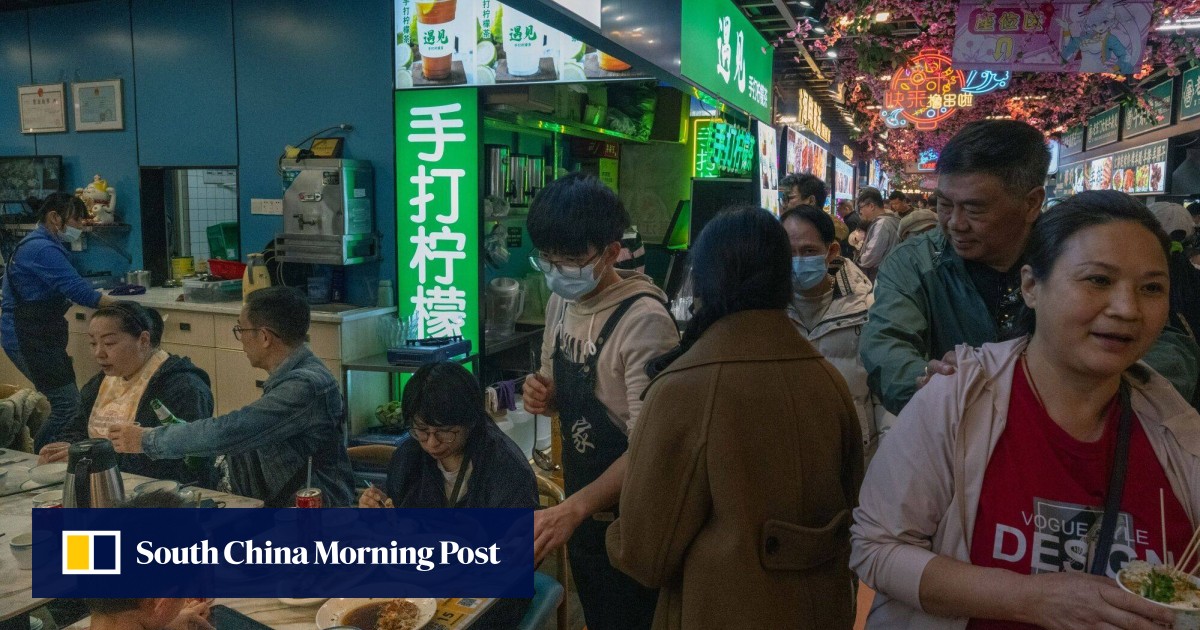
China's price-conscious shoppers are favoring budget brands over premium brands due to a fragile economy, impacting the stock performance of luxury brands like Starbucks and L'Oreal, while benefiting fast food chains like Yum China and budget clothing retailer Fast Retailing. The decline in consumer confidence and falling prices have led to a shift in purchasing behavior, with Chinese consumers demanding more value for their money and making luxury items harder to sell.

The supply of cars in the United States has increased, leading to a slowdown in price increases and making it more affordable for Americans to purchase vehicles.
President Biden and lawmakers are focusing on "shrinkflation," the practice of reducing the size of consumer goods while charging the same price, as a new target for rising prices and inflation, with Sen. Bob Casey introducing a bill to fight shrinkflation of household goods. However, critics argue that the bill goes too far by telling companies how to package their products.

The tariffs imposed by former President Donald Trump resulted in job losses and increased prices for consumers, according to filings from affected businesses and studies conducted. Although some industries benefited from the tariffs, overall job losses and higher costs for companies across the economy were reported. Experts warn that further tariffs would worsen the job losses already experienced.

Peter Akwaboah, a Ghanaian with nearly three decades of experience in the financial services industry, has been appointed as the Executive Vice President and Chief Operating Officer of Fannie Mae, one of the US Federal National Mortgage Association, effective May 20, 2024.
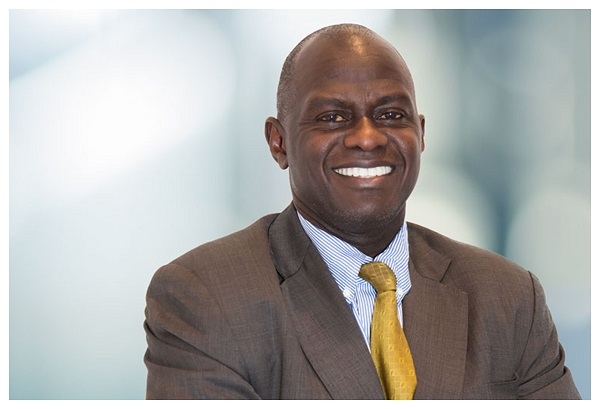
India is gaining ground on China's dominance in electronics exports, particularly in the UK and US, as manufacturers diversify their supply chains and take advantage of incentives offered by the Indian government.

Hong Kong has announced measures to boost its real estate sector, including removing decade-old restrictions, in an effort to revive its economy following an exodus of talent and an economic slowdown in mainland China.

China's "inverted pyramid" population structure and rapidly aging population pose challenges to its long-term economic growth, prompting calls for government action to boost the silver economy and improve the welfare of the elderly. The silver economy, focused on meeting aging-related demands, is seen as a key strategy to address the conflict between consumer demand and demographic structure to overcome economic growth shortfalls. The government is urged to increase income levels, enhance social welfare, and provide supportive measures and incentives for aging-related industries.
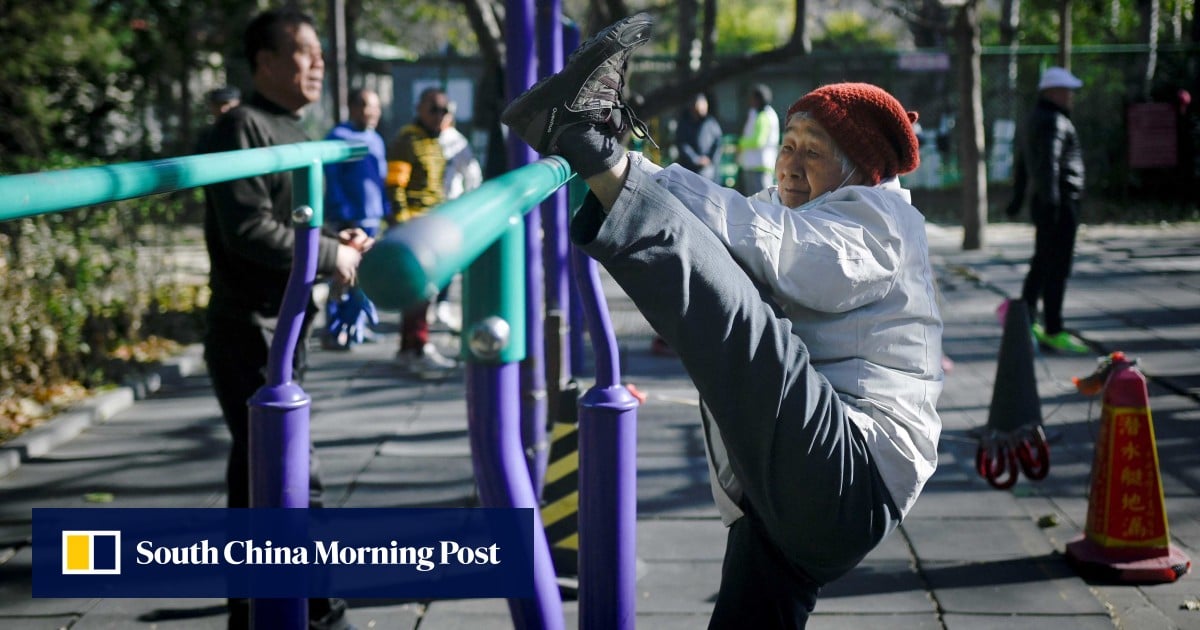
Hong Kong's finance chief, Paul Chan Mo-po, has announced plans to remove all restrictions on property transactions in an effort to revive the city's struggling economy and property market, as part of the most difficult budget blueprint ever unveiled. The budget also includes measures to stimulate growth in tourism, reduce taxes for individuals and businesses, and a more targeted approach to spending due to a large fiscal deficit.

The fertility rates in Singapore and South Korea reached new lows in 2023, despite government efforts to encourage more childbirth.

Americans are finding innovative ways to cope with rising food prices due to inflation, such as relying on cost-saving measures like couponing, buying in bulk, eating less expensive meals, growing their own food, and utilizing discounts.
The Central Bank of Nigeria has raised the benchmark interest rate to a record 22.75% in an effort to combat rising inflation, despite concerns from private sector and economists that the move could lead to job losses and a recession. The bank also increased the Cash Reserve Ratio to 45% and maintained a liquidity ratio at 30%.

Consumers are adopting various strategies to cope with rising food prices, including forgoing certain foods, meal planning, and growing their own food, as the average American household paid $213 more per month in January 2024 for the same goods and services compared to a year ago.

Islamic Council of Victoria president Adel Salman has described the October 7 Hamas attacks as a "legitimate act of resistance," prompting condemnation from the Executive Council of Australian Jewry; Qantas has agreed to pay compensation to a worker who was stood down and isolated for directing others not to clean planes arriving from China during the COVID-19 pandemic; Australia's average household income for home buyers has increased to AUD 220,000, almost a 40% jump from four years ago; Victoria is preparing for extreme fire conditions as temperatures are set to rise across the state; new analysis from the Climate Council of Australia shows that Australia's east coast cities will experience twice as many days above 35 degrees by 2050, while parts of the Northern Territory and South Australia will be uninhabitable for months of the year.

Australia's inflation remained steady in January at a two-year low, driven by decreased prices for meat and seafood, potentially paving the way for earlier interest rate cuts by the Reserve Bank.

Despite the thriving economy, Americans are feeling negative about grocery prices, which play a significant role in their perception of the economy, and factors such as political partisanship and negative media narratives contribute to this outlook.

Consumers' negative attitudes towards the economy, despite low unemployment and strong hiring, may be attributed to high interest rates on big-ticket purchases like homes and cars, which have significantly increased the cost of borrowing and payments, and economists' failure to include these costs in inflation calculations.

The New York Times claims that Trump's policies will lead to higher inflation, but fails to provide any evidence to support this, while ignoring the inflation problems during Biden's presidency. The article argues that Trump's policies actually kept inflation low and counters the claim that his actions, such as tax cuts and deregulation, had negative inflationary effects. Additionally, it suggests that a second term for Trump would focus on reducing federal spending and implementing further supply-side policies to combat inflation.

China's upcoming annual legislative sessions, known as the "two sessions," may face challenges as overcapacity concerns and strained trade relations could hinder the country's plans for economic growth, particularly in industries like new energy, despite China's position in the global markets; however, Beijing is expected to announce an ambitious GDP growth target of 5% this year and may resort to supportive fiscal policies to boost the economy.
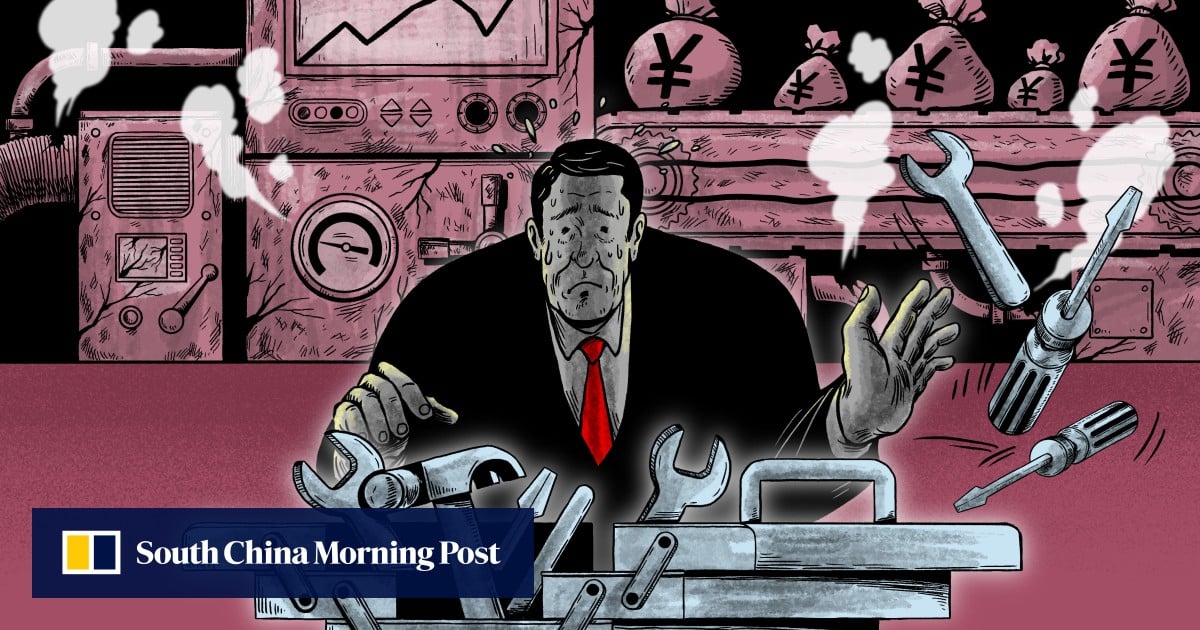
American consumers are growing more worried about the labor market and the potential for a recession, leading to a decline in consumer confidence, although they remain optimistic about the stock market; inflation concerns have eased slightly.

Wall Street banks are expanding their staffing levels in Paris, with Citigroup doubling its headcount to 400, JPMorgan now employing 900 people, and Morgan Stanley hoping to expand to 150 employees, despite concerns about France's strict labor laws.
